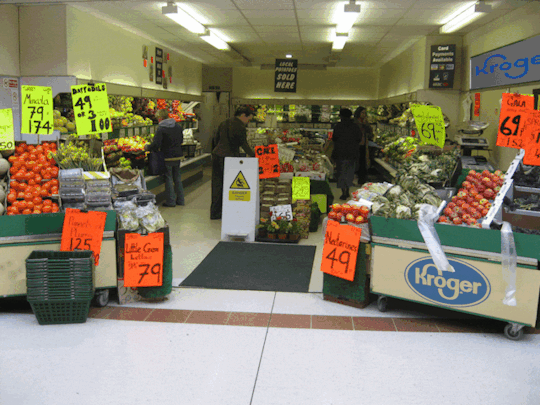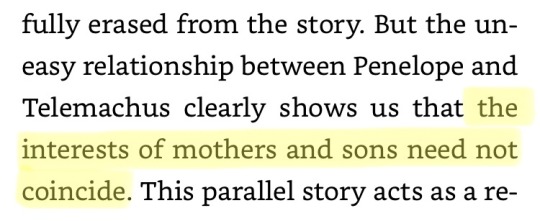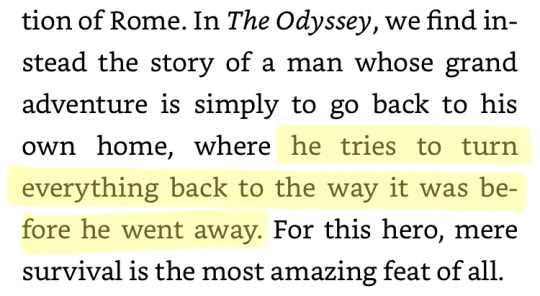#commercants
Explore tagged Tumblr posts
Text





August in Rocky Mountain Arsenal National Wildlife Refuge. Commerce City, Colorado. Photos by Amber Maitrejean
#photographers on tumblr#nature#landscape#birds#swainson's hawk#birds flying#flying insects#commerce city colorado#rocky mountain arsenal national wildlife refuge
1K notes
·
View notes
Photo

Réparation écran iPhone 12 Pro .Utilisation ventouse spécifique au nouveau iPhone Sos mobile 06 reste à votre service Vous pouvez nous retrouvez 📫 📍Au bureau Shop au : ——————50 chemin du val fleuri ———————-06800 cagnes sur mer ———-🚨 Uniquement sur Rdv 🚨———- ——Du lundi au Samedi 🗓️ ———-De 9h à 20h ⏰ ————-Non Stop 🛑 —————-07 818 918 08 📞 Ou comme d’habitude depuis 2012 à Domicile 🏡 🗓️Du lundi au samedi ⏰De 9h à 20h 🛑Non stop 👌Avec où sans rdv ☀️Ou que vous soyez sur toutes la Côte d’Azur Notre devise ? Avec Sos mobile 06 toujours satisfait 👍 N’hésitez pas Contactez-nous !!!!! 📱07 818 918 08 📧 [email protected] Où sur les réseaux sociaux sous le nom sos mobile 06 Google Facebook Instagram Snapchat Tiktok Grâce aux Réseaux sociaux vous trouverez >mes coordonnées et mes Horaires >mes Tarifs sur les réparations >Des nouveautés et des exclusivités @sosmobile06 #sosmobile06 #villedecagnessurmer #crosdecagnes #cros_de_cagnes_commerce #hautdecagnes #espritcagnes #commercants #commerces #artisans #cagnestourisme #cite_marchande_cagnes_sur_mer #madeinfrance #commercesdeproximité #commercelocal #visitcotedazur #cotedazur #cotedazurfrance #cagnesgrandcentre #cagnessurmer #association #instacagnes #Cagnes_energie #departement06 #alpesmaritimes #lifestyle #riviera (à Cagnes-sur-Mer) https://www.instagram.com/p/CqOUrK-olmD/?igshid=NGJjMDIxMWI=
#sosmobile06#villedecagnessurmer#crosdecagnes#cros_de_cagnes_commerce#hautdecagnes#espritcagnes#commercants#commerces#artisans#cagnestourisme#cite_marchande_cagnes_sur_mer#madeinfrance#commercesdeproximité#commercelocal#visitcotedazur#cotedazur#cotedazurfrance#cagnesgrandcentre#cagnessurmer#association#instacagnes#cagnes_energie#departement06#alpesmaritimes#lifestyle#riviera
0 notes
Text

7K notes
·
View notes
Photo

MANIFESTATION DES BOULANGERS ET ARTISANS Manifestation de commerçants à l'appel du "Collectif pour la survie de la boulangerie et de l'artisanat. France, Paris on January 23, 2023. ➡️ #AbacaPress #Abaca #Photographie #presse ➡️ #Manifestation #Commercants #Artisans #Boulangers #Bercy #photography #femmephotographe #photodocumentaire #press #photographie #leicawomenfotoproject #leicawomen #myleicaphoto #femmes #photojournalisme 📸 photo Patricia huchot-boissier / Abacapress / Série disponible sur #PixPalace & #Reuters https://linktr.ee/p.huchotboissier (à Paris, France) https://www.instagram.com/p/Cn-FXMdDPKh/?igshid=NGJjMDIxMWI=
#abacapress#abaca#photographie#presse#manifestation#commercants#artisans#boulangers#bercy#photography#femmephotographe#photodocumentaire#press#leicawomenfotoproject#leicawomen#myleicaphoto#femmes#photojournalisme#pixpalace#reuters
0 notes
Text

#Café#France#Paris#photography#beauty#beautiful#paris#france#2024#Commerce#Construction#Batiment#Terrasse
575 notes
·
View notes
Text
Surveillance pricing

THIS WEEKEND (June 7–9), I'm in AMHERST, NEW YORK to keynote the 25th Annual Media Ecology Association Convention and accept the Neil Postman Award for Career Achievement in Public Intellectual Activity.

Correction, 7 June 2024: The initial version of this article erroneously described Jeffrey Roper as the founder of ATPCO. He benefited from ATPCO, but did not co-found it. The initial version of this article called ATPCO "an illegal airline price-fixing service"; while ATPCO provides information that the airlines use to set prices, it does not set prices itself, and while the DOJ investigated the company, they did not pursue a judgment declaring the service to be illegal. I regret the error.
Noted anti-capitalist agitator Adam Smith had it right: "People of the same trade seldom meet together, even for merriment and diversion, but the conversation ends in a conspiracy against the public, or in some contrivance to raise prices."
Despite being a raving commie loon, Smith's observation was so undeniably true that regulators, policymakers, and economists couldn't help but acknowledge that it was true. The trustbusting era was defined by this idea: if we let the number of companies in a sector get too small, or if we let one or a few companies get too big, they'll eventually start to rig prices.
What's more, once an industry contracts corporate gigantism, it will become too big to jail, able to outspend and overpower the regulators charged with reining in its cheating. Anyone who believes Smith's self-evident maxim had to accept its conclusion: that companies had to be kept smaller than the state that regulated them. This wasn't about "punishing bigness" – it was the necessary precondition for a functioning market economy.
We kept companies small for the same reason that we limited the height of skyscrapers: not because we opposed height, or failed to appreciate the value of a really good penthouse view – rather, to keep the building from falling over and wrecking all the adjacent buildings and the lives of the people inside them.
Starting in the neoliberal era – Carter, then Reagan – we changed our tune. We liked big business. A business that got big was doing something right. It was perverse to shut down our best companies. Instead, we'd simply ban big companies from rigging prices. This was called the "consumer welfare" theory of antitrust. It was a total failure.
40 years later, nearly every industry is dominated by a handful of companies, and these companies price-gouge us with abandon. Worse, they use their gigantic ripoff winnings to fill war-chests that fund the corruption of democracy, capturing regulators so that they can rip us off even more, while ignoring labor, privacy and environmental law and ducking taxes.
It turns out that keeping gigantic, opaque, complex corporations honest is really hard. They have so many ways to shuffle money around that it's nearly impossible to figure out what they're doing. Digitalization makes things a million times worse, because computers allow businesses to alter their processes so they operate differently for every customer, and even for every interaction.
This is Dieselgate times a billion: VW rigged its cars to detect when they were undergoing emissions testing and switch to a less polluting, more compliant mode. But when they were on the open road, they spewed lethal quantities of toxic gas, killing people by the thousands. Computers don't make corporate leaders more evil, but they let evil corporate leaders execute far more complex and nefarious plans. Digitalization is a corporate moral hazard, making it just too easy and tempting to rig the game.
That's why Toyota, the largest car-maker in the world, just did Dieselgate again, more than a decade later. Digitalization is a temptation no giant company can resist:
https://www.bbc.com/news/articles/c1wwj1p2wdyo
For forty years, pro-monopoly cheerleaders insisted that we could allow companies to grow to unimaginable scale and still prevent cheating. They passed rules banning companies from explicitly forming agreements to rig prices. About ten seconds later, new middlemen popped up offering "information brokerages" that helped companies rig prices without talking to one another.
Take Agri Stats: the country's hyperconcentrated meatpacking industry pays Agri Stats to "consult on prices." They provide Agri Stats with a list of their prices, and then Agri Stats suggests changes based on its analysis. What does that analysis consist of? Comparing the company's prices to its competitors, who are also Agri Stats customers:
https://pluralistic.net/2023/10/04/dont-let-your-meat-loaf/#meaty-beaty-big-and-bouncy
In other words, Agri Stats finds the highest price for each product in the sector, then "advises" all the companies with lower prices to raise their prices to the "competitive" level, creating a one-way ratchet that sends the price of food higher and higher.
More and more sectors have an Agri Stats, and digitalization has made this price-gouging system faster, more efficient, and accessible to sectors with less concentration. Landlords, for example, have tapped into Realpage, a "data broker" that the same thing to your rent that Agri Stats does to meat prices. Realpage requires the landlords who sign up for its service to accept its "recommendations" on minimum rents, ensuring that prices only go up:
https://popular.info/p/feds-raid-corporate-landlord-escalating
Writing for The American Prospect, Luke Goldstein lays out the many ways in which these digital intermediaries have supercharged the business of price-rigging:
https://prospect.org/economy/2024-06-05-three-algorithms-in-a-room/
Goldstein identifies a kind of patient zero for this ripoff epidemic: Jeffrey Roper, a former Alaska Air exec who benefited from a service that helps airlines set prices. ATPCO was investigated by the DOJ in the 1990s, but the enforcers lost their nerve and settled with the company, which agreed to apply some ornamental fig-leafs to its collusion-machine. Even those cosmetic changes were seemingly a bridge too far Roper, who left the US.
But he came back to serve as Realpage's "principal scientist" – the architect of a nationwide scheme to make rental housing vastly more expensive. For Roper, the barrier to low rents was empathy: landlords felt stirrings of shame when they made shelter unaffordable to working people. Roper called these people "idiots" who sentimentality "costs the whole system."
Sticking a rent-gouging computer between landlords and the people whose lives they ruin is a classic "accountability sink," as described in Dan Davies' new book "The Unaccountability Machine: Why Big Systems Make Terrible Decisions – and How The World Lost its Mind":
https://profilebooks.com/work/the-unaccountability-machine/
It's a form of "empiricism washing": if computers are working in the abstract realm of pure numbers, they're just moving the objective facts of the quantitative realm into the squishy, imperfect qualitative world. Davies' interview on Trashfuture is excellent:
https://trashfuturepodcast.podbean.com/e/fire-sale-at-the-accountability-store-feat-dan-davies/
To rig prices, an industry has to solve three problems: the problem of coming to an agreement to fix prices (economists call this "the collective action problem"); the problem of coming up with a price; and the problem of actually changing prices from moment to moment. This is the ripoff triangle, and like a triangle, it has many stable configurations.
The more concentrated an industry is, the easier it is to decide to rig prices. But if the industry has the benefit of digitalization, it can swap the flexibility and speed of computers for the low collective action costs from concentration. For example, grocers that switch to e-ink shelf tags can make instantaneous price-changes, meaning that every price change is less consequential – if sales fall off after a price-hike, the company can lower them again at the press of a button. That means they can collude less explicitly but still raise prices:
https://pluralistic.net/2024/03/26/glitchbread/#electronic-shelf-tags
My name for this digital flexibility is "twiddling." Businesses with digital back-ends can alter their "business logic" from second to second, and present different prices, payouts, rankings and other key parts of the deal to every supplier or customer they interact with:
https://pluralistic.net/2023/02/19/twiddler/
Not only does twiddling make it easier to rip off suppliers, workers and customers, it also makes these crimes harder to detect. Twiddling made Dieselgate possible, and it also underpinned "Greyball," Uber's secret strategy of refusing to send cars to pick up transportation regulators who would then be able to see firsthand how many laws the company was violating:
https://www.nytimes.com/2017/03/03/technology/uber-greyball-program-evade-authorities.html
Twiddling is so easy that it has brought price-fixing to smaller companies and less concentrated sectors, though the biggest companies still commit crimes on a scale that put these bit-players to shame. In The Prospect, David Dayen investigates the "personalized pricing" ripoff that has turned every transaction into a potential crime-scene:
https://prospect.org/economy/2024-06-04-one-person-one-price/
"Personalized pricing" is the idea that everything you buy should be priced based on analysis of commercial surveillance data that predicts the maximum amount you are willing to pay.
Proponents of this idea – like Harvard's Pricing Lab with its "Billion Prices Project" – insist that this isn't a way to rip you off. Instead, it lets companies lower prices for people who have less ability to pay:
https://thebillionpricesproject.com/
This kind of weaponized credulity is totally on-brand for the pro-monopoly revolution. It's the same wishful thinking that led regulators to encourage monopolies while insisting that it would be possible to prevent "bad" monopolies from raising prices. And, as with monopolies, "personalized pricing" leads to an overall increase in prices. In econspeak, it is a "transfer of wealth from consumer to the seller."
"Personalized pricing" is one of those cuddly euphemisms that should make the hair on the back of your neck stand up. A more apt name for this practice is surveillance pricing, because the "personalization" depends on the vast underground empire of nonconsensual data-harvesting, a gnarly hairball of ad-tech companies, data-brokers, and digital devices with built-in surveillance, from smart speakers to cars:
https://pluralistic.net/2024/03/12/market-failure/#car-wars
Much of this surveillance would be impractical, because no one wants their car, printer, speaker, watch, phone, or insulin-pump to spy on them. The flexibility of digital computers means that users always have the technical ability to change how these gadgets work, so they no longer spy on their users. But an explosion of IP law has made this kind of modification illegal:
https://locusmag.com/2020/09/cory-doctorow-ip/
This is why apps are ground zero for surveillance pricing. The web is an open platform, and web-browsers are legal to modify. The majority of web users have installed ad-blockers that interfere with the surveillance that makes surveillance pricing possible:
https://doc.searls.com/2023/11/11/how-is-the-worlds-biggest-boycott-doing/
But apps are a closed platform, and reverse-engineering and modifying an app is a literal felony – several felonies, in fact. An app is just a web-page skinned with enough IP to make it a felony to modify it to protect your consumer, privacy or labor rights:
https://pluralistic.net/2024/05/07/treacherous-computing/#rewilding-the-internet
(Google is leading a charge to turn the web into the kind of enshittifier's paradise that apps represent, blocking the use of privacy plugins and proposing changes to browser architecture that would allow them to felonize modifying a browser without permission:)
https://pluralistic.net/2023/08/02/self-incrimination/#wei-bai-bai
Apps are a twiddler's playground. Not only can they "customize" every interaction you have with them, but they can block you (or researchers seeking to help you) from recording and analyzing the app's activities. Worse: digital transactions are intimate, contained to the palm of your hand. The grocer whose e-ink shelf-tags flicker and reprice their offerings every few seconds can be collectively observed by people who are in the same place and can start a conversation about, say, whether to come back that night a throw a brick through the store's window to express their displeasure. A digital transaction is a lonely thing, atomized and intrinsically shielded from a public response.
That shielding is hugely important. The public hates surveillance pricing. Time and again, through all of American history, there have been massive and consequential revolts against the idea that every price should be different for every buyer. The Interstate Commerce Commission was founded after Grangers rose up against the rail companies' use of "personalized pricing" to gouge farmers.
Companies know this, which is why surveillance pricing happens in secret. Over and over, every day, you are being gouged through surveillance pricing. The sellers you interact with won't tell you about it, so to root out this practice, we have to look at the B2B sales-pitches from the companies that sell twiddling tools.
One of these companies is Plexure, partly owned by McDonald's, which provides the surveillance-pricing back-ends for McD's, Ikea, 7-Eleven, White Castle and others – basically, any time a company gives you a hard-sell to order via its apps rather than its storefronts or its website, you should assume you're getting twiddled, hard.
These companies use the enshittification playbook to trap you into using their apps. First, they offer discounts to customers who order through their apps – then, once the customers are fully committed to shopping via app, they introduce surveillance pricing and start to jack up the prices.
For example, Plexure boasts that it can predict what day a given customer is getting paid on and use that information to raise prices on all the goods the customer shops for on that day, on the assumption that you're willing to pay more when you've got a healthy bank balance.
The surveillance pricing industry represents another reason for everything you use to spy on you – any data your "smart" TV or Nest thermostat or Ring doorbell can steal from you can be readily monetized – just sell it to a surveillance pricing company, which will use it to figure out how to charge you more for everything you buy, from rent to Happy Meals.
But the vast market for surveillance data is also a potential weakness for the industry. Put frankly: the commercial surveillance industry has a lot of enemies. The only thing it has going for it is that so many of these enemies don't know that what's they're really upset about is surveillance.
Some people are upset because they think Facebook made Grampy into a Qanon. Others, because they think Insta gave their kid anorexia. Some think Tiktok is brainwashing millennials into quoting Osama bin Laden. Some are upset because the cops use Google location data to round up Black Lives Matter protesters, or Jan 6 insurrectionists. Some are angry about deepfake porn. Some are angry because Black people are targeted with ads for overpriced loans or colleges:
https://www.theregister.com/2024/06/04/meta_ad_algorithm_discrimination/
And some people are angry because surveillance feeds surveillance pricing. The thing is, whatever else all these people are angry about, they're all angry about surveillance. Are you angry that ad-tech is stealing a 51% share of news revenue? You're actually angry about surveillance. Are you angry that "AI" is being used to automatically reject resumes on racial, age or gender grounds? You're actually angry about surveillance.
There's a very useful analogy here to the history of the ecology movement. As James Boyle has long said, before the term "ecology" came along, there were people who cared about a lot of issues that seemed unconnected. You care about owls, I care about the ozone layer. What's the connection between charismatic nocturnal avians and the gaseous composition of the upper atmosphere? The term ecology took a thousand issues and welded them together into one movement.
That's what's on the horizon for privacy. The US hasn't had a new federal consumer privacy law since 1988, when Congress acted to ban video-store clerks from telling the newspapers what VHS cassettes you were renting:
https://en.wikipedia.org/wiki/Video_Privacy_Protection_Act
We are desperately overdue for a new consumer privacy law, but every time this comes up, the pro-surveillance coalition defeats the effort. but as people who care about conspiratorialism, kids' mental health, spying by foreign adversaries, phishing and fraud, and surveillance pricing all come together, they will be an unbeatable coalition:
https://pluralistic.net/2023/12/06/privacy-first/#but-not-just-privacy
Meanwhile, the US government is actually starting to take on these ripoff artists. The FTC is working to shut down data-brokers:
https://pluralistic.net/2023/08/16/the-second-best-time-is-now/#the-point-of-a-system-is-what-it-does
The FBI is raiding landlords to build a case against Frontpage and other rent price-fixers:
https://popular.info/p/feds-raid-corporate-landlord-escalating
Agri Stats is facing a DoJ lawsuit:
https://www.nationalhogfarmer.com/market-news/agri-stats-loses-motions-to-transfer-dismiss-in-doj-antitrust-case
Not every federal agency has gotten the message, though. Trump's Fed Chairman, Jerome Powell – whom Biden kept on the job – has been hiking interest rates in a bid to reduce our purchasing power by making millions of Americans poorer and/or unemployed. He's doing this to fight inflation, on the theory that inflation is being cause by us being too well-off, and therefore trying to buy more goods than are for sale.
But of course, interest rates are inflationary: when interest rates go up, it gets more expensive to pay your credit card bills, lease your car, and pay a mortgage. And where we see the price of goods shooting up, there's abundant evidence that this is the result of greedflation – companies jacking up their prices and blaming inflation. Interest rate hawks say that greedflation is impossible: if one company raises its prices, its competitors will swoop in and steal their customers with lower prices.
Maybe they would do that – if they didn't have a toolbox full of algorithmic twiddling options and a deep trove of surveillance data that let them all raise prices together:
https://prospect.org/blogs-and-newsletters/tap/2024-06-05-time-for-fed-to-meet-ftc/
Someone needs to read some Adam Smith to Chairman Powell: "People of the same trade seldom meet together, even for merriment and diversion, but the conversation ends in a conspiracy against the public, or in some contrivance to raise prices."

If you'd like an essay-formatted version of this post to read or share, here's a link to it on pluralistic.net, my surveillance-free, ad-free, tracker-free blog:
https://pluralistic.net/2024/06/05/your-price-named/#privacy-first-again

Image: Cryteria (modified) https://commons.wikimedia.org/wiki/File:HAL9000.svg
CC BY 3.0 https://creativecommons.org/licenses/by/3.0/deed.en
#pluralistic#david dayen#the american prospect#surveillance advertising#commercial surveillance#predictive pricing#monopolism#monopolies#antitrust#unfair and deceptive method of competition#ftc act Section 5#ftca5#ripoffs#surveillance#twiddling#ip#apps#apps are shit#ziprecruiter#personalized pricing#price gouging#just and reasonable#interstate commerce act#one person one price#surveillance pricing#privacy first#billion prices project#ecommerce#ninetailed#cortado group
424 notes
·
View notes
Text

Wake with the Sun - Sleep with the Moon - Aim for the Stars.
At the Society of Alchemist's, York, England.
I think my favourite shop window.
#Inspiration#Life Quotes#Motivational#Sun#Moon#Stars#Windows#Dressing#Aesthetic#Art#Artwork#Fairycore#Faecore#Goblincore#Wizard#Witchy#Goth#Gothcore#Academia#Alchemy#Warmcore#Commerce#Advert#Inspirational#Photography
181 notes
·
View notes
Note
Question about your poster series for twst. Will you ever sell them? I'd love to buy some and hang em up
thank you! ❤️❤️❤️ I don't sell prints, but I do have print-resolution versions up here for people to print themselves! (looks like I forgot to put the tag on that post, so it wouldn't have been showing up in it before, whoops 🙃 should be under there now!)
#i have never quite figured out how to do prints in a way that doesn't involve print-on-demand sites#(and i've had waaaay too many bad experiences with those)#though i did finally get me a color printer so i've been experimenting with print and cut stickers#maybe in another four or five years i'll finally figure out what i'm doing there ᕕ( ᐛ )ᕗ#thank god for the day job because i am so not cut out for commerce
185 notes
·
View notes
Text
It's always a little weird to see people describe "Capitalism" as pretty much everything to do with money. Like, taking bills in my pocket down to the store to buy a bag of Takis isn't capitalism, that's just commerce, which has been around since Ea Nasir was passing off shoddy merchandise.
Capitalism is specifically owning machinery, devices and to a lesser extent real estate which are used by laborers to produce profit. Like unless you got that money in your pocket by selling something that your roomate made, and gave them less than what you sold it for, and used the leftover to go buy yourself some Takis, you're not a capitalist, you're just a laborer.
151 notes
·
View notes
Text

i like to think of characters i like doing mundane shit its so joyful for me. hearing jin goes to some random internet cafe makes me wonder if STREGA ever has to go grocery shopping
#persona 3#persona 3 reload#chidori yoshino#takaya sakaki#jin shirato#strega book of coupons#they could probably just like Steal things i dont think the concept of commerce means anything to them#but imagining them at the grocery store makes me giggle
505 notes
·
View notes
Text



January in Rocky Mountain Arsenal National Wildlife Refuge. Commerce City, Colorado. Photos by Amber Maitrejean
507 notes
·
View notes
Photo

Réparation écran Zébra effectuée à notre Bureau Shop de Cagnes sur mer Merci à Menzies Aviation de l’aéroport de Nice pour leurs confiance Sos mobile 06 reste à votre service Vous pouvez nous retrouvez 📫 📍Au bureau Shop au : ——————50 chemin du val fleuri ———————-06800 cagnes sur mer ———-🚨 Uniquement sur Rdv 🚨———- ——Du lundi au Samedi 🗓️ ———-De 9h à 20h ⏰ ————-Non Stop 🛑 —————-07 818 918 08 📞 Ou comme d’habitude depuis 2012 à Domicile 🏡 🗓️Du lundi au samedi ⏰De 9h à 20h 🛑Non stop 👌Avec où sans rdv ☀️Ou que vous soyez sur toutes la Côte d’Azur Notre devise ? Avec Sos mobile 06 toujours satisfait 👍 N’hésitez pas Contactez-nous !!!!! 📱07 818 918 08 📧 [email protected] Où sur les réseaux sociaux sous le nom sos mobile 06 Google Facebook Instagram Snapchat Tiktok Grâce aux Réseaux sociaux vous trouverez >mes coordonnées et mes Horaires >mes Tarifs sur les réparations >Des nouveautés et des exclusivités @sosmobile06 #sosmobile06 #villedecagnessurmer #crosdecagnes #cros_de_cagnes_commerce #hautdecagnes #espritcagnes #commercants #commerces #artisans #cagnestourisme #cite_marchande_cagnes_sur_mer #madeinfrance #commercesdeproximité #commercelocal #visitcotedazur #cotedazur #cotedazurfrance #cagnesgrandcentre #cagnessurmer #association #instacagnes #Cagnes_energie #departement06 #alpesmaritimes #lifestyle #riviera #sosmobile06 #aeroportdenice #menzies #cagnes (à Cagnes-sur-Mer) https://www.instagram.com/p/CqIO5FnoYM2/?igshid=NGJjMDIxMWI=
#sosmobile06#villedecagnessurmer#crosdecagnes#cros_de_cagnes_commerce#hautdecagnes#espritcagnes#commercants#commerces#artisans#cagnestourisme#cite_marchande_cagnes_sur_mer#madeinfrance#commercesdeproximité#commercelocal#visitcotedazur#cotedazur#cotedazurfrance#cagnesgrandcentre#cagnessurmer#association#instacagnes#cagnes_energie#departement06#alpesmaritimes#lifestyle#riviera#aeroportdenice#menzies#cagnes
0 notes
Text

Praça do Comércio, Lisbon, Portugal: The Praça do Comércio is a large, harbour-facing plaza in Portugal's capital, Lisbon, and is one of the largest in Portugal, with an area of 175 by 175 m, that is, 30,600 m². Facing the Tagus to the South, the plaza is still commonly known in Portuguese as Terreiro do Paço Wikipedia
289 notes
·
View notes
Text

















Jeanne Dielman, 23 Commerce Quay, 1080 Bruxelles (1975) dir. Chantal Akerman // Emily Wilson's introduction to The Odyssey
#jeanne dielman#jeanne dielman 23 commerce quay 1080 bruxelles#chantal akerman#the odyssey#emily wilson#classics#books#women directors#web weaving#ellis reads#literature#ellisedits#parallellis#she's odysseus AND penelope. to me <3#also maybe calypso and/or circe#also maybe it defeats the whole point to compare jeanne dielman to a homeric epic! but maybe it doesn't#or maybe i'm comparing the homeric epic to jeanne dielman and not the other way around ����#anyway this film IS truly incredible. i love art.
429 notes
·
View notes
Text


Sa Bung-aw sa mga Kasal-anan is the title of a book by Vicente Rama, but I’ve stolen it for a closing wham line because Trebonius makes his second entrance onto the political stage on behalf of Crassus-Caesar&Pompey, and it’s one of those events where you kind of expected it to happen at some point (because the continuous spirals civil war and violence keep escalating), but the actual moment itself is still recognizable and horrifying. ah, the trajectory. ah, the death knell, or whatever. it deserves a punchy line. there's no coming back from this.


but before the death knell: proper introductions have to be made.
also one of the themes in Sa Bung-aw sa mga Kasal-anan is marital infidelity, Caesar discarding Trebonius and Trebonius conspiring to kill him is thematically adjacent to those kinds of infidelities and transgressions. sort of. a little bit. honestly, I can make it work.
⭐ places I’m at! bsky / pixiv / pillowfort /cohost / cara.app / tip jar!
#ladies and gentlemen the warlords of the republic of rome have returned!#i hope you enjoy the smell of carnage and rot!#the. warlord economy. that great chain of commerce. chasing everyone in here with a wrench#komiks tag#roman republic tag#drawing tag#gaius trebonius
149 notes
·
View notes